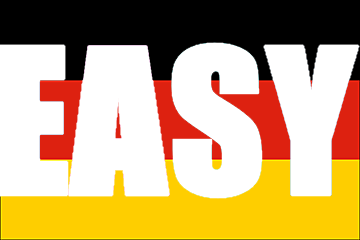| ICFCY-Code | Title | Description |

|
b117
|
Intellectual functions |
General mental functions, required to understand and constructively integrate the various mental functions, including all cognitive functions and their development over the life span. |

|
b122
|
Global psychosocial functions |
General mental functions, as they develop over the life span, required to understand and constructively integrate the mental functions that lead to the formation of the personal and interpersonal skills needed to establish reciprocal social interactions, in terms of both meaning and purpose. |

|
b1644
|
Insight |
Mental functions of awareness and understanding of oneself and one's behaviour. |

|
d137
|
Acquiring concepts |
Developing competence to understand and use basic and complex concepts related to the characteristics of things, persons or events. |

|
d140
|
Learning to read |
Developing the competence to read written material (including Braille and other symbols) with fluency and accuracy, such as recognizing characters and alphabets, sounding out written words with correct pronunciation, and understanding words and phrases. |

|
d1402
|
Acquiring skills to understand written words and phrases |
Learning elementary actions to grasp the meaning of written words and texts. |

|
d310
|
Communicating with - receiving - spoken messages |
Comprehending literal and implied meanings of messages in spoken language, such as understanding that a statement asserts a fact or is an idiomatic expression, such as responding and comprehending spoken messages. |

|
d3152
|
Communicating with - receiving - drawings and photographs |
Comprehending the meaning represented by drawings (e.g. line drawings, graphic designs, paintings, three-dimensional representations, pictograms), graphs, charts and photographs, such as understanding that an upward line on a height chart indicates that a child is growing. |

|
d325
|
Communicating with - receiving - written messages |
Comprehending the literal and implied meanings of messages that are conveyed through written language (including Braille), such as following political events in the daily newspaper or understanding the intent of religious scripture. |

|
d4303
|
Carrying on shoulders, hip and back |
Taking or transporting an object from one place to another using the shoulders, hip or back, or some combination of these, such as when carrying a large parcel or school-bag. |

|
d4551
|
Climbing |
Moving the whole body upwards or downwards, over surfaces or objects, such as climbing steps, rocks, ladders or stairs, curbs or other objects. |

|
d5400
|
Putting on clothes |
Carrying out the coordinated tasks of putting clothes on various parts of the body, such as putting clothes on over the head, over the arms and shoulders, and on the lower and upper halves of the body; putting on gloves and headgear. |

|
d5401
|
Taking off clothes |
Carrying out the coordinated tasks of taking clothes off various parts of the body, such as pulling clothes off and over the head, off the arms and shoulders, and off the lower and upper halves of the body; taking off gloves and headgear. |

|
d7102
|
Tolerance in relationships |
Showing and responding to understanding and acceptance of behaviour in a contextually and socially appropriate manner. |

|
d7201
|
Terminating relationships |
Bringing interactions to a close in a contextually and socially appropriate manner, such as by ending temporary relationships at the end of a visit, ending long-term relationships with friends when moving to a new town or ending relationships with work colleagues, professional colleagues and service providers, and ending romantic or intimate relationships. |

|
d740
|
Formal relationships |
Creating and maintaining specific relationships in formal settings, such as with teachers, employers, professionals or service providers. |

|
e1250
|
General products and technology for communication |
Equipment, products and technologies used by people in activities of sending and receiving information, such as optical and auditory devices, audio recorders and receivers, television and video equipment, telephone devices, sound transmission systems and face-to-face communication devices, not adapted or specially designed. |

|
e330
|
People in positions of authority |
Individuals who have decision-making responsibilities for others and who have socially defined influence or power based on their social, economic, cultural or religious roles in society, such as teachers, employers, supervisors, religious leaders, substitute decision-makers, guardians or trustees. |

|
e340
|
Personal care providers and personal assistants |
Individuals who provide services as required to support individuals in their daily activities and maintenance of performance at work, education or other life situation, provided either through public or private funds, or else on a voluntary basis, such as providers of support for home-making and maintenance, personal assistants, transport assistants, paid help, nannies and others who function as primary caregivers. |

|
e345
|
Strangers |
Individuals who are unfamiliar and unrelated, or those who have not yet established a relationship or association, including persons unknown to the individual but who are sharing a life situation with them, such as substitute teachers co-workers or care providers. |

|
e355
|
Health professionals |
All service providers working within the context of the health system, such as doctors, nurses, physiotherapists, occupational therapists, speech therapists, audiologists, orthotist-prosthetists, medical social workers. |

|
e360
|
Other professionals |
All service providers working outside the health system, including social workers, lawyers, teachers, architects, and designers. |

|
e440
|
Individual attitudes of personal care providers and personal assistants |
General or specific opinions and beliefs of personal care providers and personal assistants about the person or about other matters (e.g. social, political and economic issues), that influence individual behaviour and actions. |

|
e5950
|
Political services |
Services and structures such as local, regional and national governments, international organizations and the people who are elected or nominated to positions within these structures, such as the United Nations, European Union, governments, regional authorities, local village authorities, traditional leaders. |


 =Select (and add) this code
=Select (and add) this code  Click on a code to expand the branch
Click on a code to expand the branch 

































